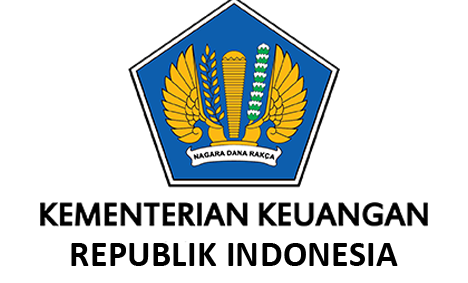- All
- Data & Analytic
- DJPK
- GEDSI
- Gender Responsive Budgeting
- MSS
- PFM
- Public Financial
- SKALA
- Standard
- Top 10
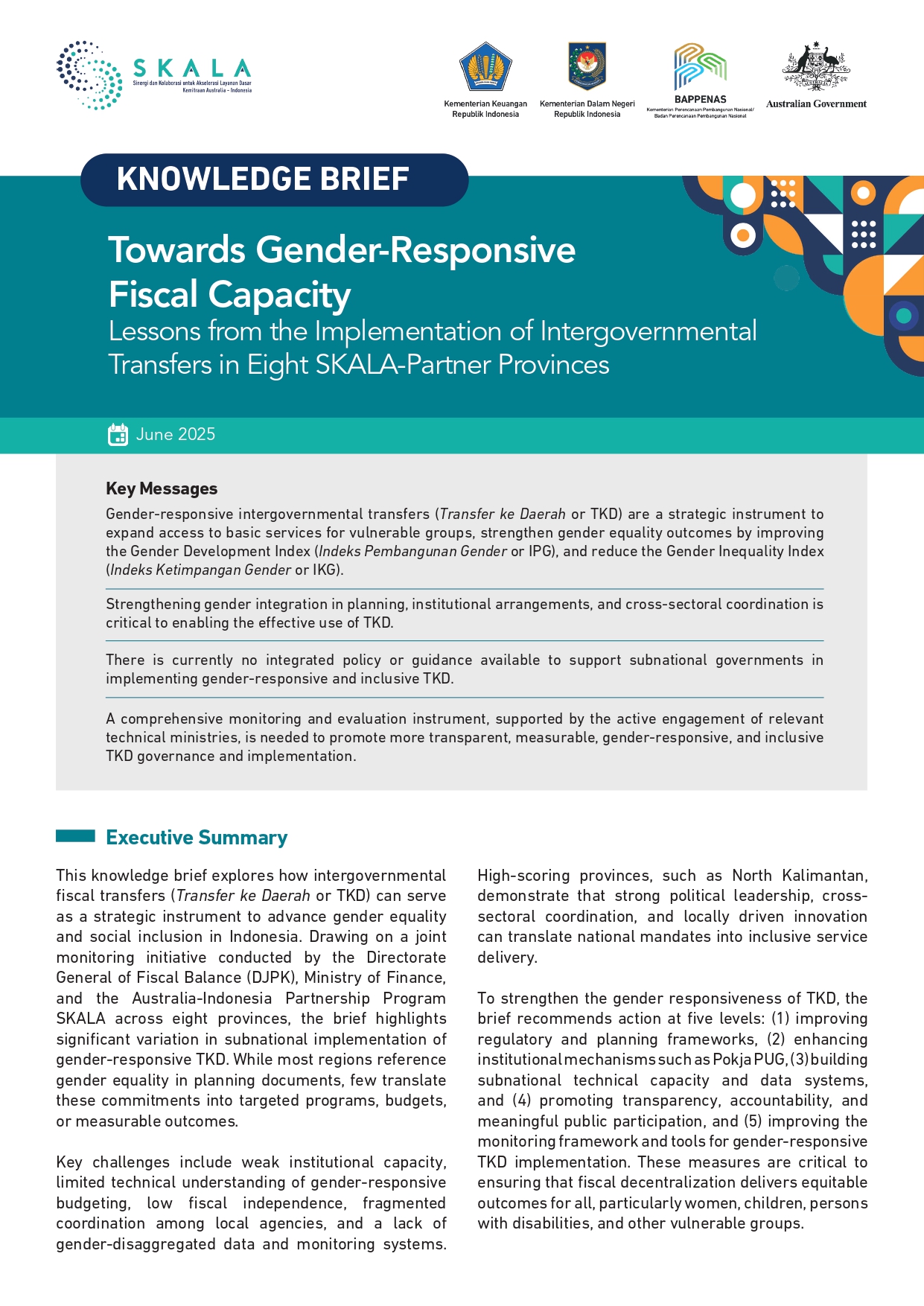
Explore SKALA’s Knowledge Brief on how intergovernmental fiscal transfers (Transfer ke Daerah/TKD) can advance gender equality and inclusive development across Indonesia. Drawing from a joint monitoring effort by the Ministry of Finance and SKALA, the brief reveals key barriers, such as institutional capacity, data systems, and fiscal dependence, and showcases promising practices, including North Kalimantan’s innovative approach to mainstreaming gender equality in planning and budgeting. With practical policy recommendations, this brief supports efforts to align fiscal decentralization with gender-responsive planning, budgeting, and service delivery for women, persons with disabilities, and vulnerable communities.
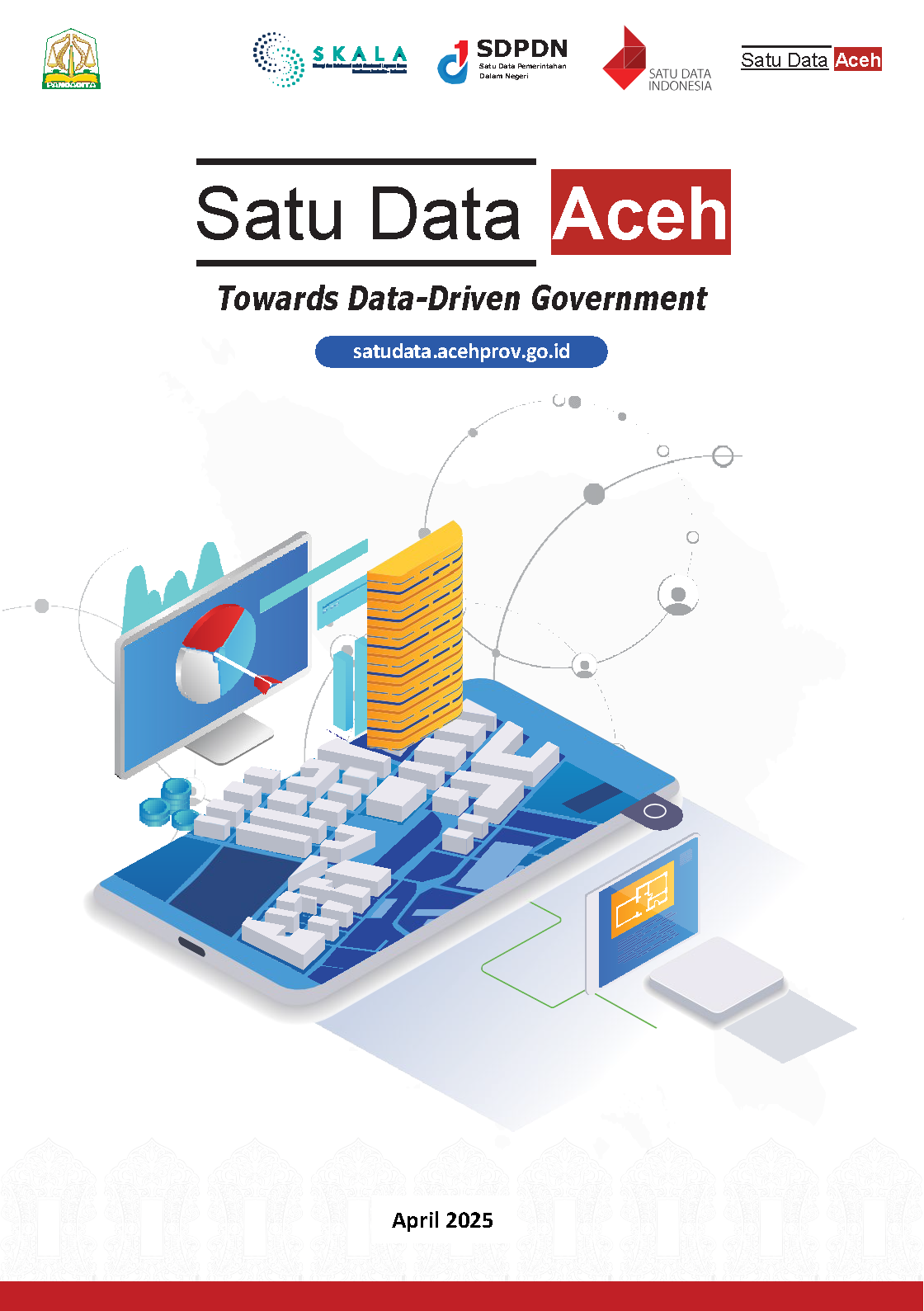
Satu Data Aceh is a strategic initiative by the Government of Aceh. It aligns with the Satu Data Indonesia policy under Presidential Regulation No. 39/2019. As one of the Governor and Vice Governor’s priority programs for 2025–2029, it advances regional development through integrated, verified, and accessible data. The platform—satudata.acehprov.go.id—hosts over 10,000 datasets from the province and its 23 regencies/cities, featuring dashboards, interactive maps, thematic infographics, and downloadable data. With strong institutional coordination and a robust legal framework, Satu Data Aceh enables transparent, accountable, and evidence-based policy planning. Discover how data can drive better services and governance in Aceh through this...
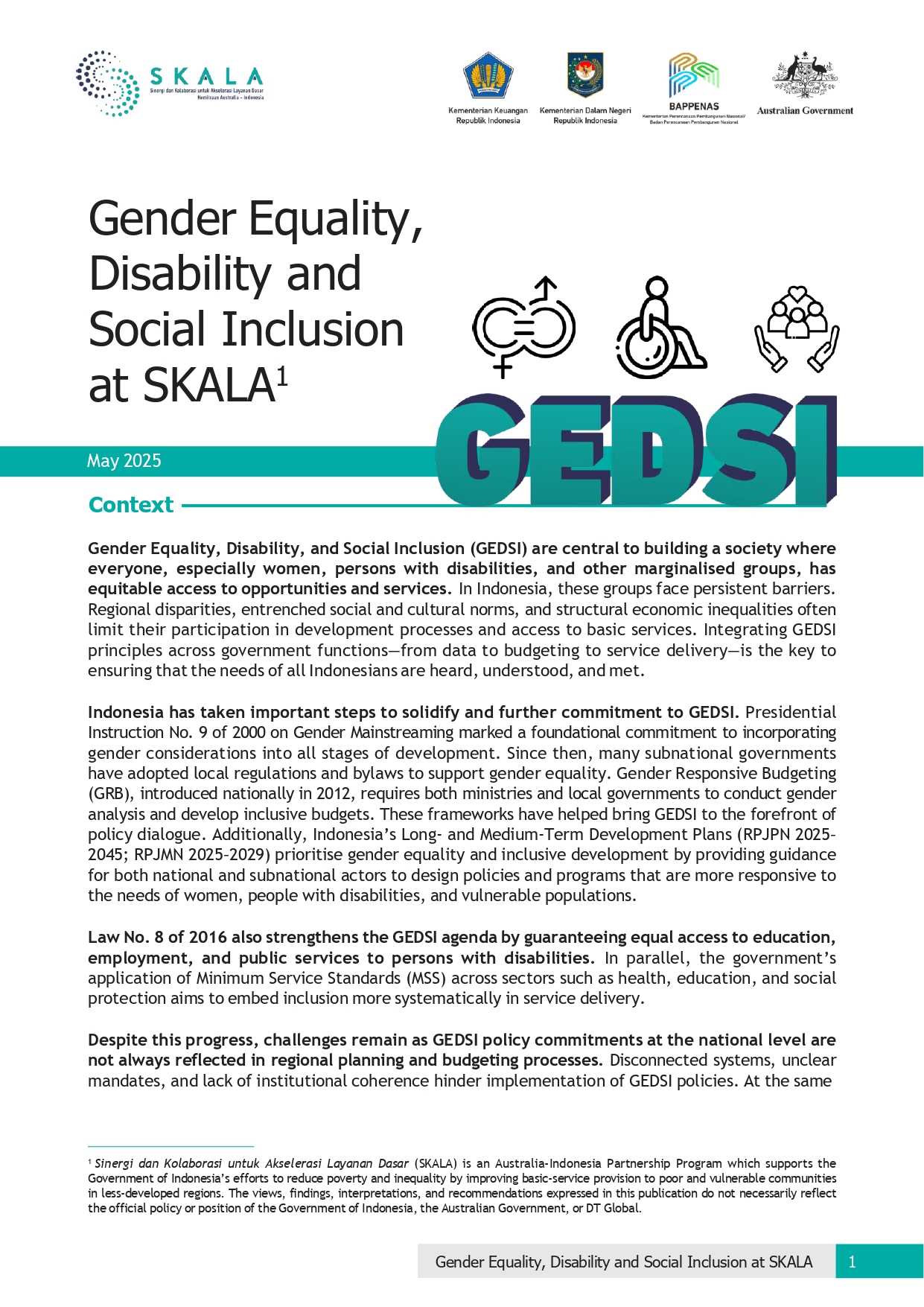
The Government of Indonesia in collaboration with the SKALA Program is integrating Gender Equality, Disability and Social Inclusion (GEDSI) principles into governance to ensure more equitable and responsive basic services. Through collaboration with ministries, local governments, and civil society networks, SKALA promotes inclusive planning and budgeting, institutional capacity building, and utilization of gender and disability disaggregated data. This approach is realized in various forms of technical support such as policy development, strengthening data systems and participatory forums, and policy advocacy that targets the sustainable fulfillment of the needs of vulnerable groups.
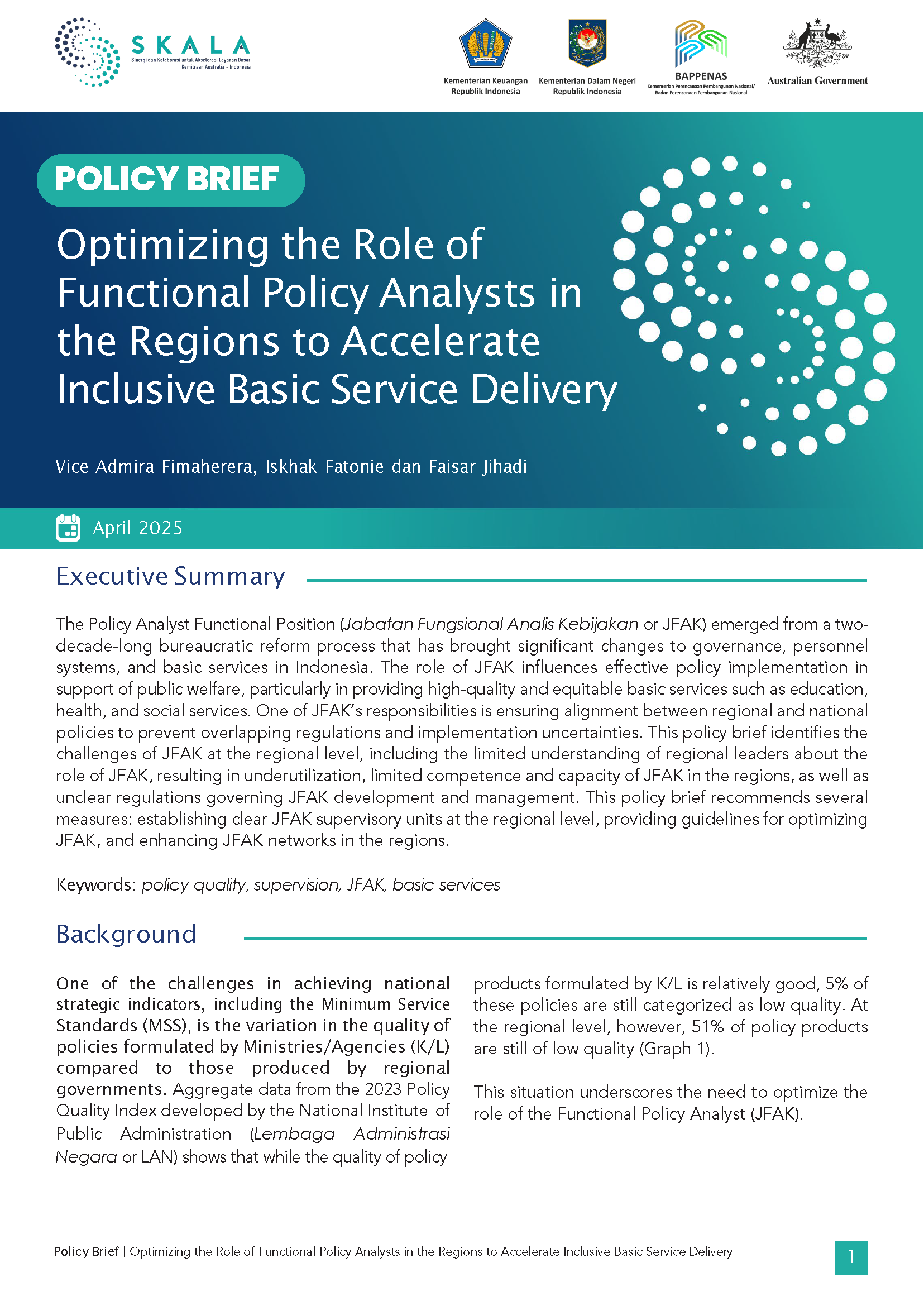
The Policy Analyst Functional Position (Jabatan Fungsional Analis Kebijakan or JFAK) emerged from a two-decade-long bureaucratic reform process that has brought significant changes to governance, personnel systems, and basic services in Indonesia. The role of JFAK influences effective policy implementation in support of public welfare, particularly in providing high-quality and equitable basic services such as education, health, and social services. One of JFAK’s responsibilities is ensuring alignment between regional and national policies to prevent overlapping regulations and implementation uncertainties. This policy brief identifies the challenges of JFAK at the regional level, including the limited understanding of regional leaders about the...
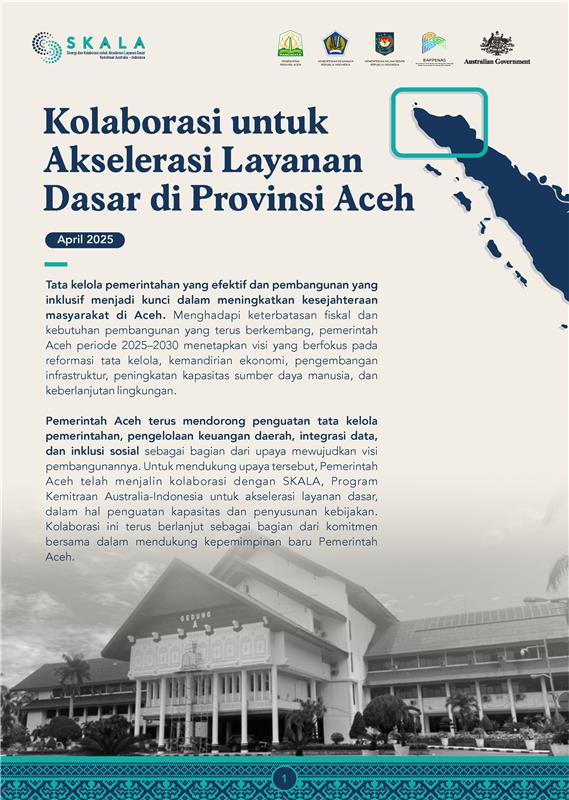
SKALA and the Aceh Provincial Government have established a strategic collaboration to encourage the acceleration of basic services through strengthening governance, public financial management, and inclusive and sustainable development. In the face of fiscal challenges and development dynamics, this collaboration focuses on policy reform, increasing the capacity of the apparatus, strengthening data-based planning systems, and engaging vulnerable groups and civil society. By supporting the implementation of more responsive, inclusive and evidence-based policies, the partnership aims to realize the Government of Aceh's 2025-2030 vision of building efficient governance and prosperous communities.

